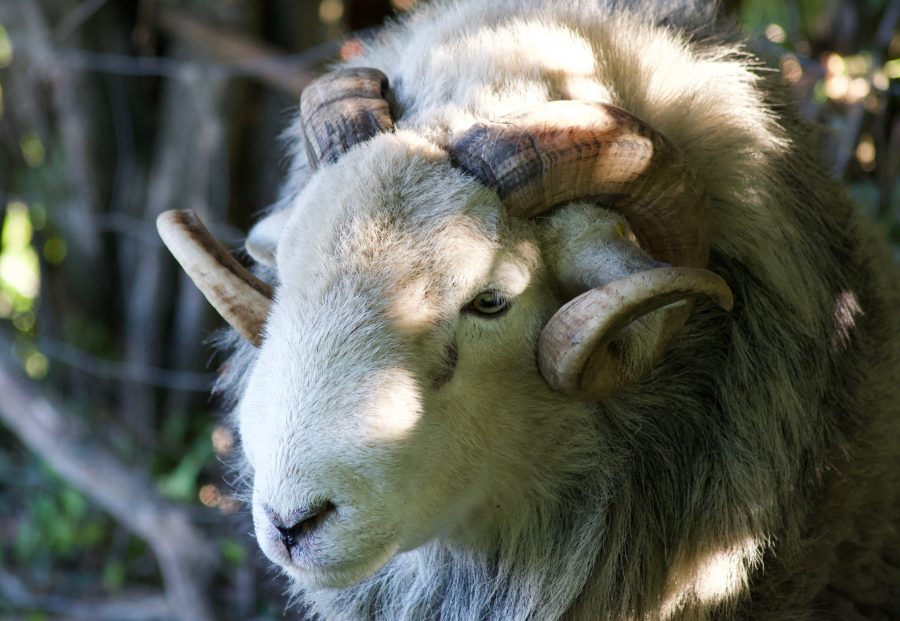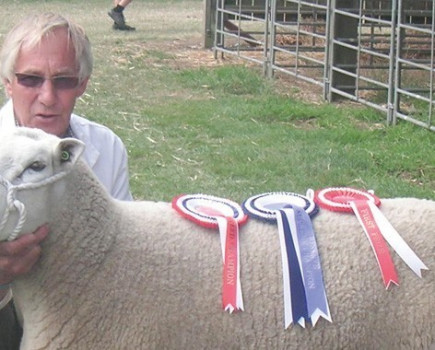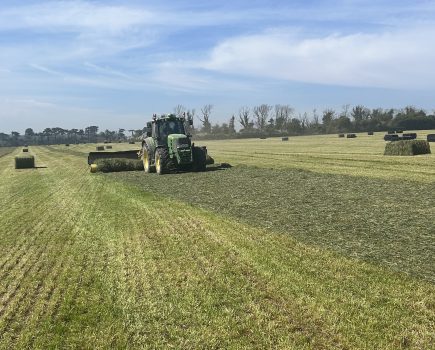Their dogs chase and worry our sheep, an increasing and often devastating problem, they may from time to time leave gates open, they allow their dogs to foul our grazing, they don’t always stick to footpaths, they chuck rubbish over the hedge and dump it in gateways, they can be a real a pain in the neck and, unfortunately, there are a lot more of them than there are of us. The general public; why should we have to put up with them?
If faced with dead or badly mauled sheep simply because some idiot devoid of the necessary skills or intelligence to even own a dog has failed to keep theirs under control, it is easy to blame all dog walkers; if sheep have escaped through a gate that has been left open, it’s just as easy to blame all walkers, etc. But to be fair, they are not all bad and in spite of their significant faults (none of us is perfect) their misdeeds are generally not done in malice but out of ignorance. Simply polarising and blaming them all does both the general public and us a disservice.
The indisputable reality of the situation is simply that the public makes up our potential customer base, or at least 95% plus of them do, and when faced with a shrinking domestic demand for our products – domestic demand for lamb dropped by 17% last year – we simply cannot afford to alienate them and, as much as we might like to, we cannot ignore them.
We happen to be fortunate this year in that a strong global market and a healthy cross-Channel export trade has propped up UK market prices, but, sadly, we probably need them more that they need us; there are plenty of other meat choices available and there are plenty of global suppliers who would be happy to supply lamb for British supermarkets.
There are lots of arguments as to why demand should have dropped, but to many UK consumers lamb was simply becoming too expensive. It is not that a lot of people have stopped eating meat; many have switched to less meat or cheaper alternatives, poultry for example.
We obviously do not want to see lamb and sheep meat prices fall significantly; that is not in anyone’s long-term interest, so how can we convince consumers to buy more British lamb? To the average consumer, lamb is just lamb; sheep producers might want to know where the lamb in their local supermarket comes from, simply because they have a vested interest and they care. They look at the label, particularly the bit that states “country of origin”. Most consumers are really not that concerned; they look at the label but really only see the bit that tells them the price.
In order to regain some of this lost market share, we need to convince consumers that British lamb is something special, which it certainly is, and to encourage support for British producers. As sheep producers we may not think that what we do is special, but it is; we just need to relay that to our customers.
What we are all capable of is helping mitigate some of the issues that arise as a result of the appalling lack of public knowledge and understanding about what we as sheep producers do and the problems we frequently face. It is not that complicated. Often all it needs is a cheery hallo and a bit of a chat. We can all contribute, even if only in a very small way; if we all simply say that we “haven’t got time” to help enlighten and educate them, then we are all partially to blame. They are our customers and product information, including some of the back-story, is all part of good marketing.
Just as a small example, on the opposite side of the road to one of my paddocks there is a new, small, housing development, and several weeks ago one of the occupants of these new houses telephoned me to tell me that I had a lame sheep; she told me how much she enjoys watching the sheep, which is nice, but had spotted that one was limping.
I already knew this; it was a ram lamb with a touch of scald that I had treated that same morning, but I thanked her for her concern and explained the situation, no problem. It just so happened that the next morning as I was on my sheep rounds she was walking her dog up the lane, so I made a point of being by the gate as she came past. After a few pleasantries, she asked how the ram lamb was, we had a chat about sheep in general and lameness in particular and I let her know that the ram lamb, although still favouring a foot a little, was much improved. She went on her way quite happily, feeling that she had done something to help and a little bit wiser about sheep keeping.
A couple of days ago our paths crossed again and she asked what had happened to the ram lamb as it had disappeared from the paddock; observant, you might think, spotting that one was missing. The fact that it was the only Herdwick in amongst a group of Lleyn ram lambs might have had something to do with it; what she hadn’t spotted, however, was that all of the ram lambs had been moved to our ram paddock half a mile away and the sheep she was now looking at were in fact some ewes tidying up behind them.
So once again I explained what had happened and why; that we needed to move sheep to the available grass, and so on. With the ewes in sight, conversation inevitably turned to lambing, so we discussed the relative merits of indoor and outdoor lambing, whether or not the ewes needed any assistance at lambing and so on. I had other things to do, but ten minutes or so of chatting to someone who, to be fair, wanted to know and asked lots of quite sensible questions, was well worthwhile.
So this lady, who I could easily have regarded as being a bit interfering and ignored, is now a little bit wiser, a little more sympathetic and I hope will no doubt have a slightly different outlook when it comes to buying lamb (she did tell me how much she enjoyed a piece of lamb occasionally), I’m sure that she will at least make some attempt to ensure that it is British lamb, I just hope that she also imparts a little of what she has discovered to her friends. I did let her know that the local farm shop sold some very nice, locally produced lamb.
Part of marketing is about winning hearts and minds. Some are doing a good job already, generating opportunities to communicate with our customers by hosting lambing open days, taking part in Open Farm Sunday, etc. Some may not be quite so comfortable in these more formal situations, but we can all make a contribution in some small way; it is simply a matter of grasping opportunities that may arise. Many dog walkers, ramblers, people simply out for a bit of exercise etc. welcome the opportunity to find out a bit more about what we do. Someone just needs to start the conversation, a simple “good morning” is often all that it takes to stimulate a chat.
If we want our customers to support British sheep farmers and buy British, then a better knowledge and understanding of what we do goes a long way in helping to develop that support, and understanding comes from communication and meaningful dialogue. They are, after all, our customers.
I shall, by the way, the next time I see the said lady, invite her to drop in once we start lambing to see what we do and talk about some of the problems we might face – without her dog, of course.







